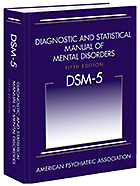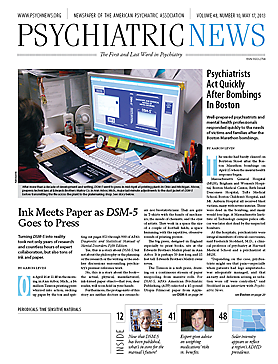The diagnosis of dementia is subsumed under the newly named entity major neurocognitive disorder (NCD), although the term dementia is not precluded from use in the etiologic subtypes where that term is standard. Further, DSM-5 now recognizes a less severe level of cognitive impairment, mild NCD, which can also be a focus of care.
Mild NCD is a new disorder that permits the diagnosis of less disabling syndromes that may nonetheless be the focus of concern and treatment. While the threshold between minor and major is inherently arbitrary, there are important reasons to consider these two levels of impairment separately. The major NCD syndrome provides consistency with the rest of medicine and with prior editions of this manual and necessarily remains distinct to capture the care needs for this group. While the mild NCD syndrome is new to DSM-5, its presence is consistent with its use in other fields of medicine, where it is a significant focus of care and research, notably on Alzheimer’s disease, cerebrovascular disorders, HIV, and traumatic brain injury.
1. In DSM-IV, the severity threshold criterion for the diagnosis of dementia was “cognitive decline sufficient to interfere with social and occupational functioning.” What replaced this criterion in DSM-5 in the diagnosis of major neurocognitive disorder?
a) impairment in occupational functioningb) impairment in social functioningc) impairment in completing self-care activitiesd) impairment in objective measures of cognitive functione) both impairment on objective measures of cognitive function and impairment in independent completion of daily activities as an effect of this cognitive impairment.
2. In DSM-5, on what criterion does the distinction between mild neurocognitive disorder and major neurocognitive disorder depend?
a) whether or not the individual is concerned about a decline in cognitive functionb) the presence of impairment on cognitive testingc) whether or not the cognitive impairment is sufficient to interfere with independent completion of activities of daily livingd) co-occurrence with deliriume) co-occurrence with another Axis I psychiatric disorder.
3. Expressed as a percentile score, what is the severity of cognitive impairment on objective testing (relative to appropriate norms) required to support a diagnosis of major neurocognitive disorder?
a) below the 60th percentileb) below the 50th percentilec) below the 25th percentiled) below the 16th percentilee) below the 3rd percentile. ■

